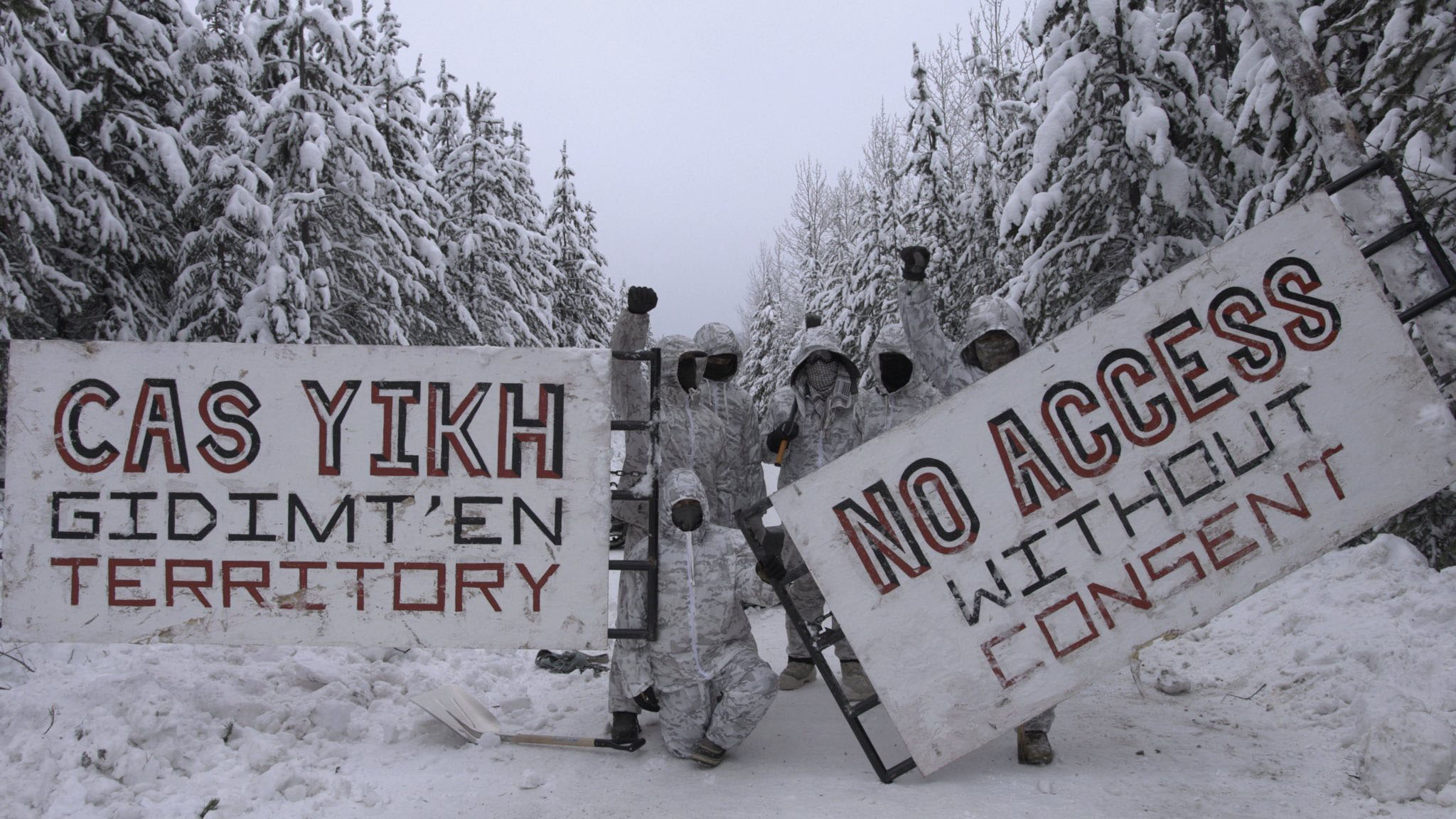In an announcement on January 4, the activists of the Indigenous Wet’suwet’en tribe in British Columbia, Canada, have stated they are staging a “strategic retreat”. Water protectors who have been resisting the construction of the Coastal GasLink (CGL) pipeline and staging an occupation and blockade at the drillsite near Camp Coyote have retreated to evade arrests and another violent police crackdown.
Earlier this week, Wet’suwet’en chiefs and activists had been reporting a massive mobilization of the Royal Canadian Mounted Police (RCMP) near Coyote Camp, raising concerns of a fourth attack on the activists, as well as further arrests. “Before a large-scale mobilization by police, water protectors vanished into the woods, evading police violence and criminalization,” read the Gidimt’en Checkpoint’s statement
“We expect an imminent assault on our people at the direction of Coastal GasLink as we continue to occupy and utilize our yintah (land),” the statement added.
In a video statement by Sleydo’ (Molly Wickham), spokesperson for the Gidimt’en Checkpoint and wing chief of the Cas Yikh clan, she stated that the authorities “have imprisoned our Indigenous women and our warriors. We will not allow our people to be political prisoners.”
Sleydo’, is one of the several activists who were arrested from Coyote Camp in November and saddled with multiple charges for their protest against the pipeline.
RCMP has carried out two previous violent crackdowns on the Indigenous protesters since the resistance against CGL began in 2018. According to the activists, so far the RCMP has made 70 arrests, including at least three hereditary chiefs of the tribe.
Since the most recent wave of blockades and occupations beginning in September, Coyote Camp has been a major site of confrontation between TC Energy, which owns CGL, and the RCMP on the one hand and Wet’suwet’en hereditary chiefs and anti-pipeline protesters on the other. A total of 70 days of blockade were successfully imposed by the activists since September.
On September 25, the Gidimt’en clan led a new phase of blockade of the drillsite to prevent the looming pipeline construction. The blockade went on for 56 days until the RCMP launched a third invasion and crackdown against water protectors on November 18, just days after activists sought to impose a 2020 evacuation notice against CGL.
The invasion and violent crackdown led to 30 arrests, including those of journalists and organizers. More than a month later, Wet’suwet’en activists again peacefully reoccupied Coyote Camp on December 19 and successfully evacuated the CGL employees and contractors from Wet’suwet’en. Water protectors sustained the most recent blockade for over two weeks before announcing the strategic retreat.
Activists have insisted that the retreat is not to be taken as a withdrawal of the movement, but only as a means to avoid arrests and constant legal and judicial persecution of the water protectors. “Our warriors are not here to be arrested,” said Sleydo’.
Resistance against the multi-billion dollar pipeline is expected to continue in other forms. “Our warriors are here to protect the land and the water, and will continue to do so at all costs,” Sleydo’ added.
CGL is yet to finish a key part of pipeline construction that goes through Wet’suwet’en territory, which has been at the forefront of questions of Indigenous land rights and sovereignty in Canada.
While CGL have argued that they secured consent from the elected chiefs of the band council formed by the controversial Indian Act, hereditary chiefs of Wet’suwet’en have argued that the 22,000 sq.km. of land is unceded and therefore band councils do not have authority to hand over land titles to outsiders.
Currently CGL is armed with a provincial supreme court injunction to evacuate protesting activists from drill sites and the pipeline’s pathway, with the help of RCMP.





